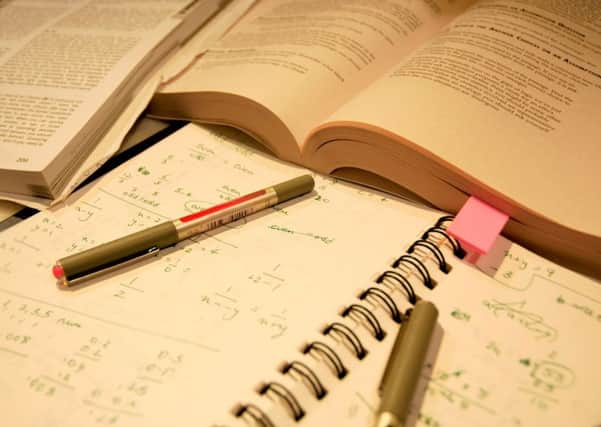East Dunbartonshire teachers join industrial action over workload


The local teachers say they hope pupils, parents and carers will understand and support their reasons.
Members of Scotland’s largest teaching union, the Educational Institute of Scotland (EIS), voted recently in favour of “action short of a strike” by a 95% margin,
Advertisement
Hide AdAdvertisement
Hide AdThey are calling for a reduction in what they say is “excessive levels of assessment linked to new National Qualifications, which is destroying the morale and wellbeing of both pupils and teachers.”
The EIS represents more than 80% of Scottish teachers, including the majority of secondary teachers.
Teachers will continue to teach classes and assess pupils’ work as normal, and extra-curricular activities are unaffected by the action.
Speaking for East Dunbartonshire teachers, Kenneth Brown, EIS Local Association Secretary said: “Our secondary teachers are joining with colleagues across Scotland in making a stand against the excessive assessment demands of the SQA.
Advertisement
Hide AdAdvertisement
Hide Ad“The unit assessment burden that is being placed on pupils and teachers is severe and unnecessary.
“Demoralised students and staff are stressed out by the constant stream of assessment that they are required to complete for Nationals and Highers. There is an impact on the family life and health of our members and our young people.”
He added: “After three years of repeatedly broken promises about reductions in the excessive burden of assessment, the patience of teachers is also exhausted.
“This isn’t just about teachers. We hope that pupils, parents and carers will understand and support our reasons for taking this action.
Advertisement
Hide AdAdvertisement
Hide Ad“We are determined to stand together, through the EIS, to ensure that the unrealistic and damaging assessment burden on pupils and teachers is finally reduced to sensible, manageable levels.”
Education secretary John Swinney has said the results of the ballot were “disappointing”, adding that industrial actions would “not be in the interests of anyone.”
Mr Swinney said earlier this year that he intended to personally reconvene a working group, including teacher unions, to drive further progress in reducing unnecessary bureaucracy.
He added in June: “In my discussions with teachers, I have heard their concerns around workload. The First Minister and I have set out various steps we are taking to tackle bureaucracy and free up teachers to teach, and we are already actively considering further measures.”